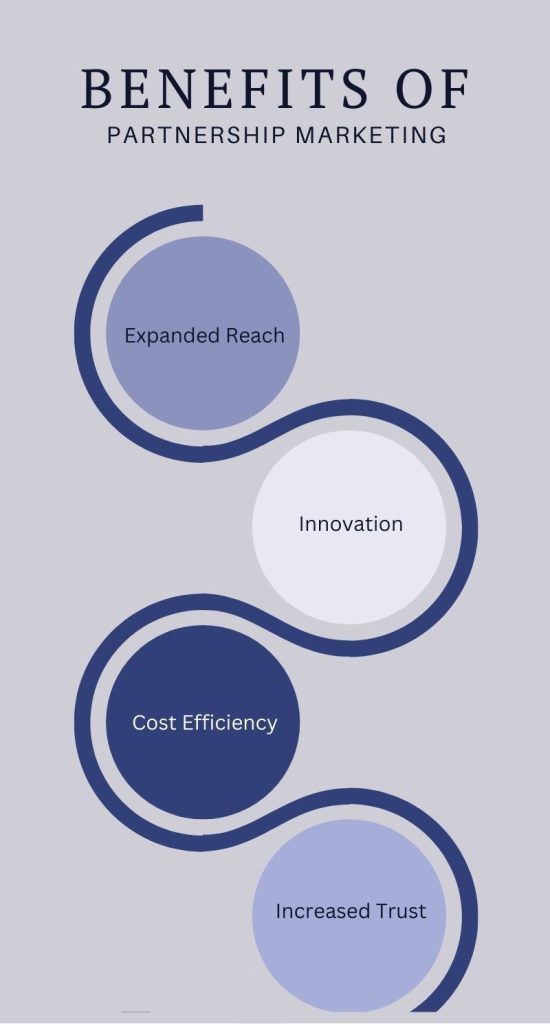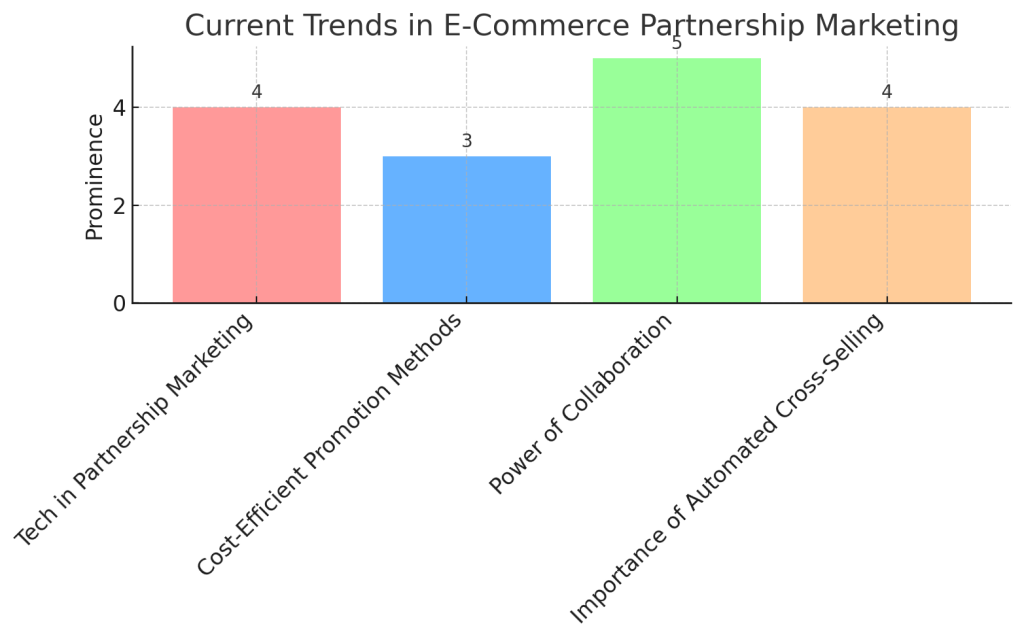Trends in E-Commerce Partnership Marketing
Category partnerships

Posted by Wei T.
Growth Marketing Expert

In the ever-evolving landscape of e-commerce, one strategy has proven to be a game-changer - partnership marketing. As businesses continue to seek innovative ways to reach their target audience, the importance of partnership marketing in e-commerce cannot be overstated.
From boosting brand visibility to enhancing customer experience, partnership marketing has emerged as a key player in the digital marketplace.
In this blog post, we will delve into the world of partnership marketing, exploring its significance, understanding its mechanism, and highlighting the latest trends.
As a leading platform in the e-commerce industry, CrossyShop is at the forefront of these developments, providing businesses with the tools and strategies they need to thrive.
Understanding Partnership Marketing
Partnership marketing is a collaborative effort between two or more businesses with the aim of creating mutually beneficial marketing campaigns.
This strategy leverages the strengths of each partner to reach a wider audience, generate more leads, and drive sales. To learn more about the concept, you can check out our detailed blog post on online partnership marketing.
The importance of partnership marketing for e-commerce businesses can be summarized in the following points:
| Benefits of Partnership Marketing |
|---|
|
|
|
|

The above benefits underscore why partnership marketing has become an integral part of e-commerce growth strategy.
As we move further into the digital age, understanding and leveraging this marketing approach will be crucial for businesses looking to stay ahead of the curve.
What is an E-commerce Partnership?
An e-commerce partnership is a strategic alliance between two or more e-commerce businesses with the goal of mutual growth and success.
This collaboration can take various forms, such as affiliate marketing, joint product development, or cross-promotion of products.
E-commerce partnerships offer a plethora of benefits:
- Shared Resources: Partners can share resources, such as technology, customer data, and marketing tools, to enhance their operations.
- Expanded Customer Base: By partnering, businesses can access each other's customer base, thereby expanding their reach.
- Increased Brand Awareness: Partnerships often lead to increased brand visibility as businesses get exposed to new audiences.
However, e-commerce partnerships also come with their own set of challenges:
- Alignment of Goals: Ensuring that all partners share the same goals and vision can be difficult.
- Sharing of Profits: Partners must agree on a fair distribution of profits, which can be a contentious issue.
- Risk of Reputation Damage: If one partner engages in unethical practices, it can damage the reputation of the other partners.
Despite these challenges, the potential benefits of e-commerce partnerships make them a worthwhile consideration for any e-commerce business.
One of the Biggest Trends in E-Commerce
One of the most significant trends in e-commerce today is the increasing use of data-driven strategies.
E-commerce businesses are leveraging data analytics to gain insights into customer behavior, market trends, and the effectiveness of marketing campaigns.
This allows them to make informed decisions, optimize their operations, and provide personalized customer experiences.
Data-driven strategies are transforming every aspect of e-commerce, from marketing and sales to customer service and supply chain management.
Businesses that effectively harness the power of data can gain a competitive edge, drive growth, and ensure long-term success in the e-commerce landscape.
In the next section, we will delve into the current trends in e-commerce partnership marketing and how businesses can leverage these trends to their advantage.
Current Trends in E-Commerce Partnership Marketing
 Here's a bar chart showcasing the current trends in e-commerce partnership marketing. The values used represent the prominence or importance of each trend in the current landscape.
Here's a bar chart showcasing the current trends in e-commerce partnership marketing. The values used represent the prominence or importance of each trend in the current landscape.
As the e-commerce landscape continues to evolve, partnership marketing is also undergoing significant transformations. Let's explore some of the current trends in this space:
-
Increased Use of Technology in Partnership Marketing: Technology is playing a crucial role in facilitating and enhancing partnership marketing. From CRM systems to data analytics tools, technology is helping businesses manage their partnerships more effectively and derive greater value from them. To learn more about how technology is transforming partnership marketing, check out our blog post on e-commerce partnership tools to boost sales.
-
The Rise of Cost-Efficient Methods for Promoting Online Stores: As competition in the e-commerce space intensifies, businesses are seeking more cost-effective ways to promote their online stores. Partnership marketing, with its shared resources and collaborative approach, offers a cost-efficient solution. For more insights on this trend, read our blog post on cost-efficient methods for promoting online stores.
-
The Power of Collaboration in Business Partnerships: Collaboration is at the heart of successful business partnerships. By combining their strengths and resources, businesses can achieve more than they could on their own. Our blog post on the power of collaboration in business partnerships delves deeper into this trend.
-
The Increasing Importance of Automated Cross-Selling to Boost Sales: Automated cross-selling is emerging as a powerful strategy for boosting sales in e-commerce. By recommending relevant products to customers based on their purchase history, businesses can increase their sales and enhance customer satisfaction. Learn more about this trend in our blog post on automated cross-selling to boost sales.
How to Create Successful Partnerships
Creating successful partnerships requires careful planning, clear communication, and mutual trust. Here are some steps to guide you in this process:
- Identify Potential Partners: Look for businesses that complement yours and share your values and goals.
- Define Your Partnership Agreement: Clearly outline the terms of the partnership, including the roles and responsibilities of each partner, the distribution of profits, and the resolution of disputes.
- Leverage Each Other's Strengths: Each partner should contribute their unique strengths to the partnership, whether it's a wide customer base, advanced technology, or innovative marketing strategies.
- Communicate Regularly: Regular communication is key to maintaining a healthy partnership. Keep each other updated on your progress and address any issues promptly.
- Evaluate and Adjust: Regularly evaluate the effectiveness of your partnership and make necessary adjustments to ensure its success.
For a more detailed guide on creating successful partnerships, check out our blog post on how to create partnerships. Also, to understand how partnerships can be similar to joint ventures, you can refer to this blog post.
Conclusion
Partnership marketing is a powerful strategy that can drive growth and success in the competitive e-commerce landscape.
By staying abreast of the latest trends and leveraging the power of collaboration, businesses can create successful partnerships that deliver mutual benefits.
At CrossyShop, we are committed to helping businesses navigate the world of e-commerce and partnership marketing. For more information or assistance, feel free to contact us.